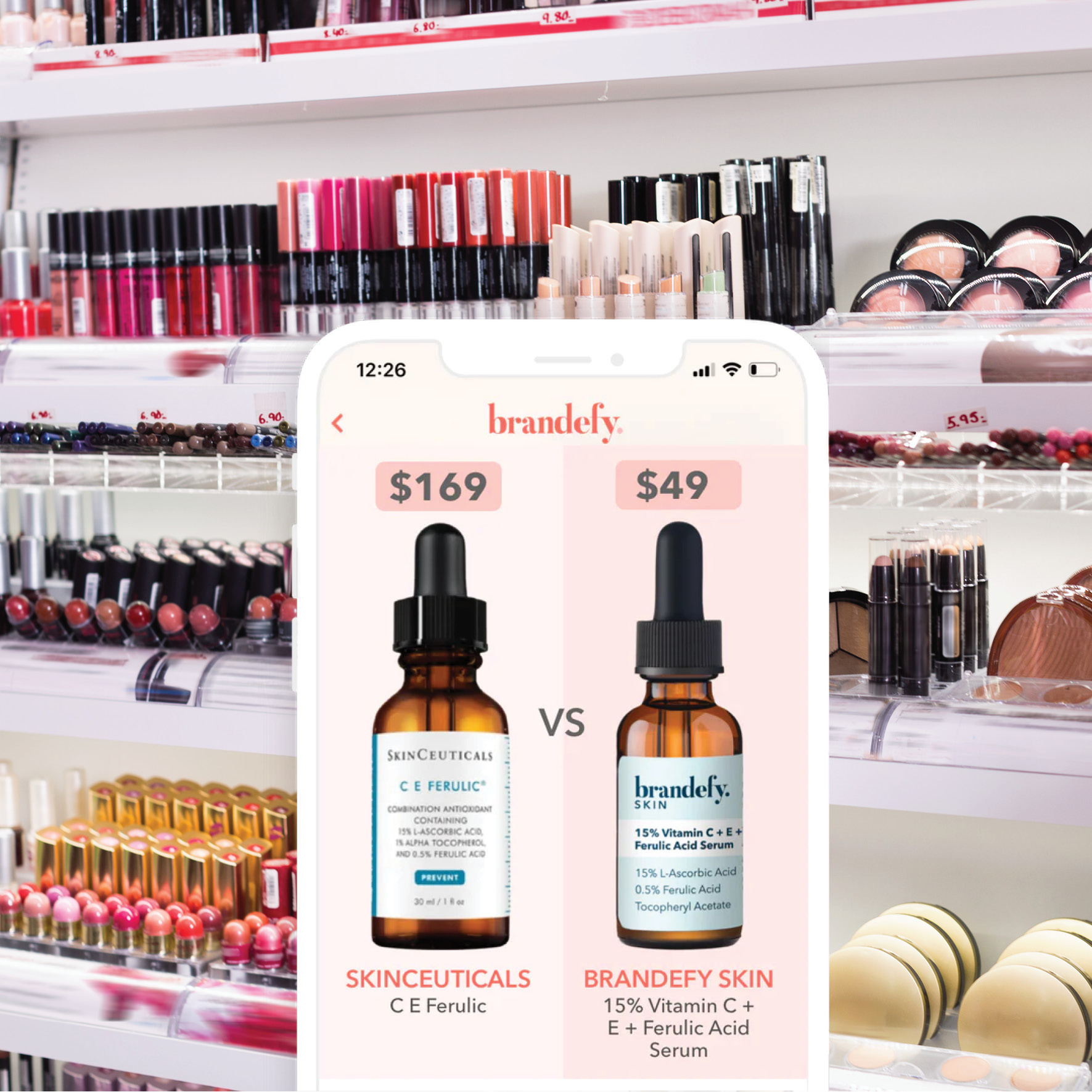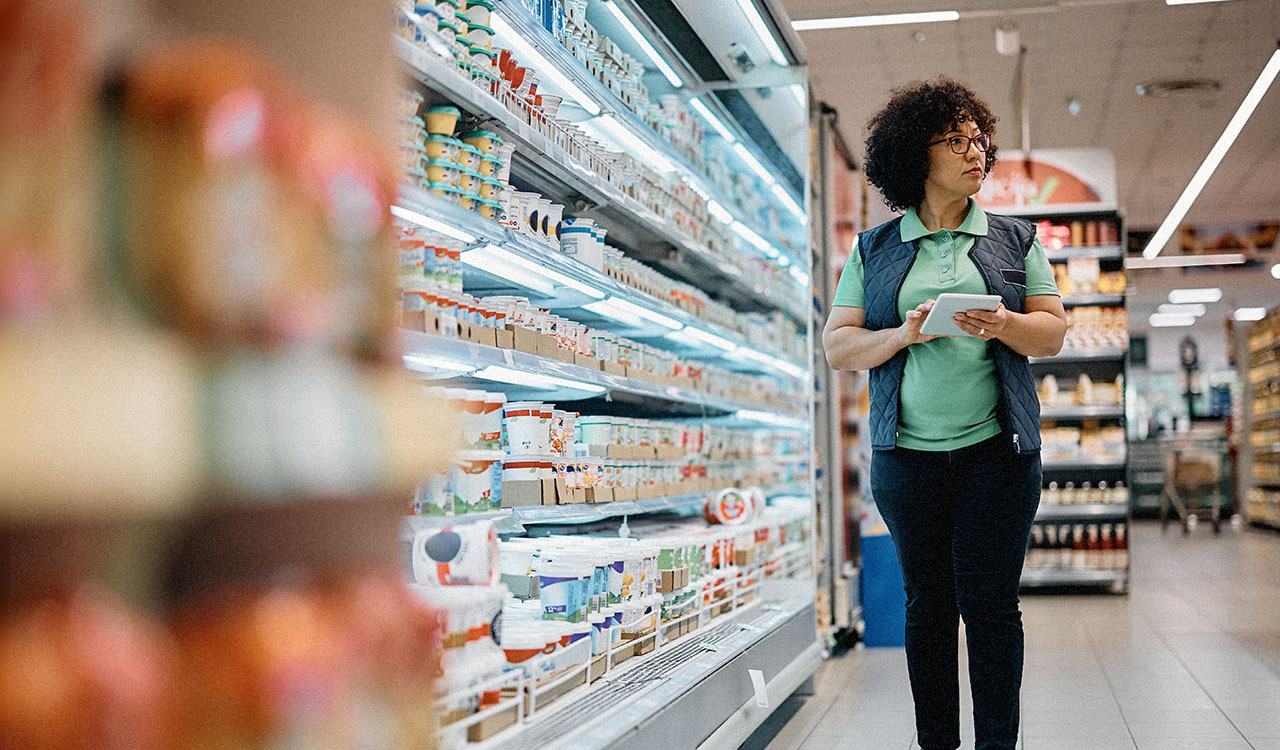With more than 60,000 monthly searches, and nearly a half million downloads since its 2018 debut, the comparison-shopping app Brandefy is a success by any measure. And the fact that this handy tool for finding beauty dupes acquired nearly 70,000 new “community members” in 2021 speaks to both the consumer’s growing skincare-literacy and fondness for self-care acquired during Covid, alongside a more recent surge in inflation-generated concerns about personal finances.
TikTokking into the Alternatives
And then there’s that other massive uptick boosting the dupes movement: TikTok. As of mid-September, the “trending dupes” search alone has yielded nearly 2.6 billion views, and that’s in addition to eye-popping numbers attached to hashtags like #makeupdupes, #skincaredupes, #beautydupes…the list is endless.
Unfortunately for some of the more popular high-end beauty brands, there are also searchable product alternatives available on TikTok. Tap in “charlotte tilbury dupes”, for example, and scores of options pop up.
Now, with the advent of TikTok, the duping is more brazen, and the reach is much, much broader. Pity the legit designer with a hit look; between fast-fashion behemoth Shein and the army of fleet-fingered TikTokers out there, they don’t stand a chance.
A Dupe by Any Other Name
Although Brandefy initially used the term “Dupe Score” in its shoppable side-by-side comparisons of pricey and not-so-pricey products, founder and CEO Meg Pryde is officially over it. She now prefers the term “Product Similarity Score.”
Why the switch? “’Dupe’ can have a negative connotation for both our community members and the industry,” Pryde explains. “We’re never trying to knock anyone, more just offer an alternative.”
Assessed by community members — who still use the term “dupe” quite freely, by the way — the prestige vs. drugstore product comparisons factor in such elements as color, wear time, finish, whether the product is cruelty-free, ingredients and more. They also assign a “similarity bar” in green (extremely similar), red (not similar) or yellow (signaling that products have both notable similarities and differences).
In a quick hop around the app, I landed on a comparison of the cult-fave Laneige Lip Sleeping Mask and Berry Lip Sleeping Mask by Care:nel, a brand I’d never heard of. Providing an in-depth analysis touching on scent, consistency, performance and the fact that the Laneige mask comes equipped with a teensy weensy paddle applicator while the Care:nel does not, community member Kayla concluded that both products are good, but why not just go for the $10 option rather than the $20? “I liked both products,” she shares. “But if you’re wanting to save some money definitely give Care:nel brand a try. It did not disappoint.”
And just like that, Laneige potentially loses a ton of present and future sales.
Lifting the Curtain on Beauty
For Pryde, Brandefy is largely about empowering its users by providing beauty-industry transparency.
Yes, there are the side-by-side product comparisons that facilitate smart shopping, but it goes deeper than that. In a “spilling the tea” section on the Brandefy website, she lifts the curtain on the industry as a whole. “4 big beauty companies own the vast majority of beauty sales!” she declares. “They are Estee Lauder, L’Oreal, Unilever and P&G. Here’s an example of some of the brands L’Oreal owns: Youth to the People, it Cosmetics, NYX, Urban Decay, Garnier, Maybelline, CeraVe.”
Discovering this for herself years ago was the lightbulb moment for Pryde, and the impetus for Brandefy. Although the app originally focused on multiple product categories, beauty quickly surfaced as the most dynamic. “I worked in consumer packaged goods and learned that often the same manufacturers make different brands and that actual product differentiation between products can be great or very little. I launched the app to create a community around this concept and it just took off in beauty. So many people wanted affordable alternatives to products, and we couldn’t always find them.”
Guess what happened next? Pryde launched her own skincare line, Brandefy Skin. Now community members can read reviews pitting, say, $130 SkinCeuticals Triple Lipid Restore against $59 Brandefy Skin Silks Triple Lipid Cream Moisturizer.
So basically, what started out as a beauty dupe hunting ground is now a beauty dupe purveyor, too.
Fast Fashion Is Dupes on Steroids
While dupe terminology wasn’t around when the H&Ms, Topshops, and Zaras of the world got rolling, there’s zero question that duping was the mission behind these wildly popular “high street” fashion retailers. Churning and burning the looks of the season, they filled the selling floor with knockoff looks so fast that the fashion editor pack barely got home from the semi-annual New York/London/ Milan/ Paris runway circuit before the deluge began.
Now, with the advent of TikTok, the duping is more brazen, and the reach is much, much broader. Pity the legit designer with a hit look; between fast-fashion behemoth Shein and the army of fleet-fingered TikTokers out there, they don’t stand a chance.
While few product categories are immune to duping these days, fashion is exceedingly hard-hit. “You see [duping] more and more across tech, furniture and increasingly fashion with the rise of TikTok greats and sold-out popular items,” says Pryde.
When Dupe-Shopping Goes Both Ways
Even if we aren’t technically in a recession (yet), shopping for both necessities and luxuries definitely isn’t a whole lot of fun these days.
Still, there are times when even the most dialed-in, ingredient-savvy, budget-conscious beauty consumer—even after doing her/his/their due diligence via TikTok, Instagram or Brandefy—opts to purchase the pricier product.
“I love this about the app,” says Pryde. “It’s ‘to each its own’. We never tell you what the better product is for you. We’re just here to help you make more educated choices. Sometimes that means feeling vindicated about spending $80 on (Drunk Elephant) Babyfacial because The Ordinary is too harsh.”
But of course, for Drunk Elephant and other purveyors of luxury skincare, fragrance and makeup, the choice very often goes in the opposite direction. And therein, at least for brands, lies the very real downside in dupes.




